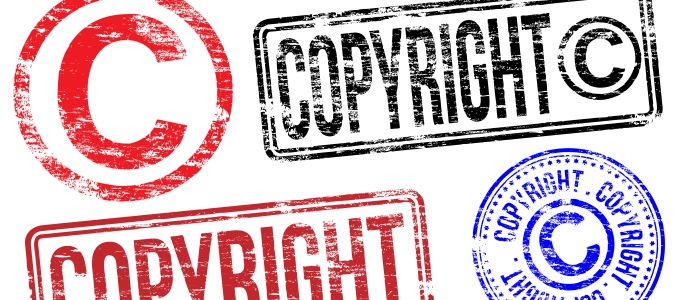Copyright (or author’s right) is a legal term used to describe the rights that creators have over their literary and artistic works. Works covered by copyright range from books, music, paintings, sculpture, and films, to computer programs, databases, advertisements, maps, and technical drawings.
Exhaustive lists of works covered by copyright are usually not to be found in legislation. Nonetheless, broadly speaking, works commonly protected by copyright throughout the world include:
- literary works such as novels, poems, plays, reference works, newspaper articles;
- computer programs, databases;
- films, musical compositions, and choreography;
- artistic works such as paintings, drawings, photographs, and sculpture;
- architecture; and
- advertisements, maps, and technical drawings.
Copyright protection extends only to expressions, and not to ideas, procedures, methods of operation or mathematical concepts as such. Copyright may or may not be available for a number of objects such as titles, slogans, or logos, depending on whether they contain sufficient authorship.
There are two types of rights under copyright:
- economic rights, which allow the rights owner to derive financial reward from the use of his works by others;
- moral rights, which protect the non-economic interests of the author.
Most copyright laws state that the rights owner has the economic right to authorize or prevent certain uses in relation to a work or, in some cases, to receive remuneration for the use of his work (such as through collective management). The economic rights owner of a work can prohibit or authorize:
- its reproduction in various forms, such as printed publication or sound recording;
- its public performance, such as in a play or musical work;
- its recording, for example, in the form of compact discs or DVDs;
- its broadcasting, by radio, cable or satellite;
- its translation into other languages; and
- its adaptation, such as a novel into a film screenplay.
Examples of widely recognized moral rights include the right to claim authorship of a work and the right to oppose changes to a work that could harm the creator’s reputation.
Copyright is your legal right to protect your work. Imagine writing a poem, putting it on your blog, with no copyright, and a few months later you find that someone has published your poem under their own name and received a tremendous financial gain for your work. There is virtually nothing you could do about it, there is no proof as to sole ownership, that however could have been avoided entirely if you had taken preliminary action in gaining a copyright on your poem… and this sort of thing happens all the time.
Copyright can make you money. Under copyright laws you are able to allow others to use your works for a fee, or you can sell your copyright to others for a larger fee, by using a copyright license. If someone chooses to infringe upon your copyrighted works, you are granted the right to seek legal action and providing you have necessary legal evidence (this is where the benefits of copyright registration can become a highly valuable asset) that you are in fact, sole copyright owner you will more than likely be awarded financial compensation. Copyrights are incredibly valuable for companies in terms of intangible assets that can be transferred, valued or traded, as well. Whether an individual or a large company, these assets are key components that can be greatly significant in terms of financial value for particular organizations, based upon their balance sheet or assets and liability statements.
Something also to take into consideration is that copyrights can last up to fifty years after the death of the original copyright owner. It is important to note, that copyrights can be passed down to a family member, which in turn leaves a lasting legacy to pass down to different generations as a valuable (and memorable) estate in your memory well after you are gone.
There are particular things that in fact, can not be copyrighted. For instance, names and phrases can not be copyrighted, although slogans can be trademarked, they can not be copyrighted. Facts, also can not be copyrighted, while using a fact to support one of your ideas, you may copyright your final outcome, however the particular fact you used to accompany your idea or opinion, can not be copyrighted. Procedures and methods, also can not be copyrighted, although you may be able to protect the way these things are expressed..
There is a great deal to learn and understand in terms of copyright and copyright law, and if it is something that you are trying to determine if it should or can apply to yourself or your business it is best to consider doing a great amount of research to ensure that you will be covered if the need should ever arise where someone may attempt to infringe upon your copyright. It is a good idea to provide necessary caution in terms of protecting both yourself, and your ideas in regards to your creative works. You work hard to express yourself and boast your creativity, please make sure that you take proper precautions in protecting them as well.
